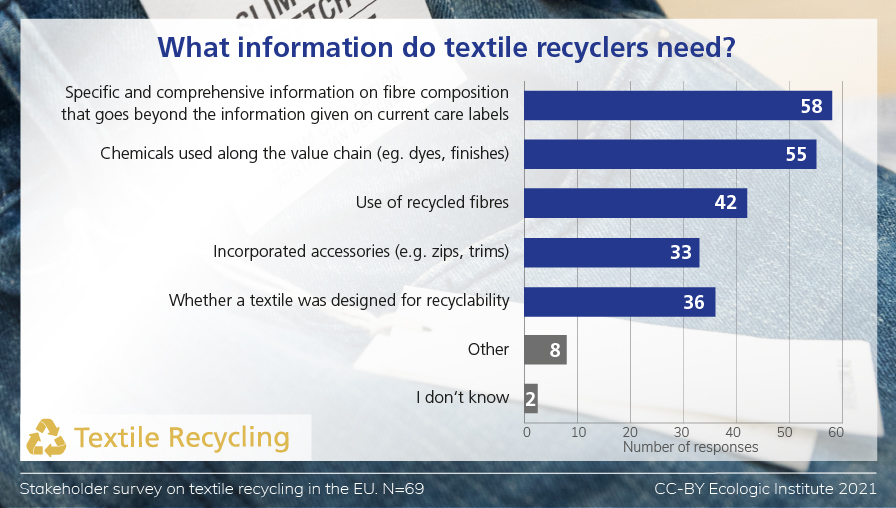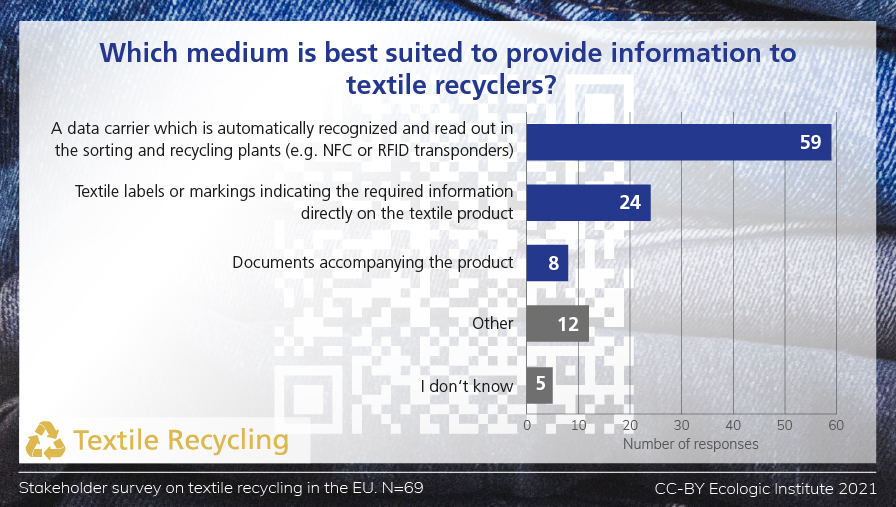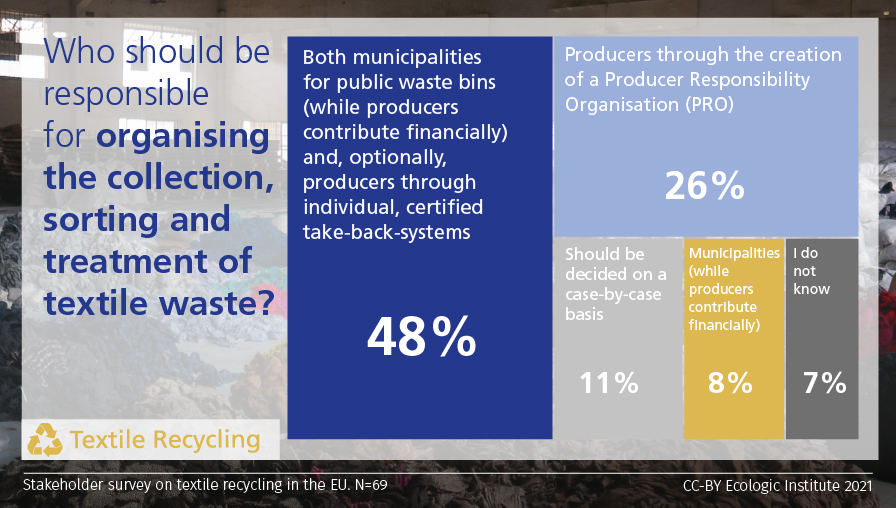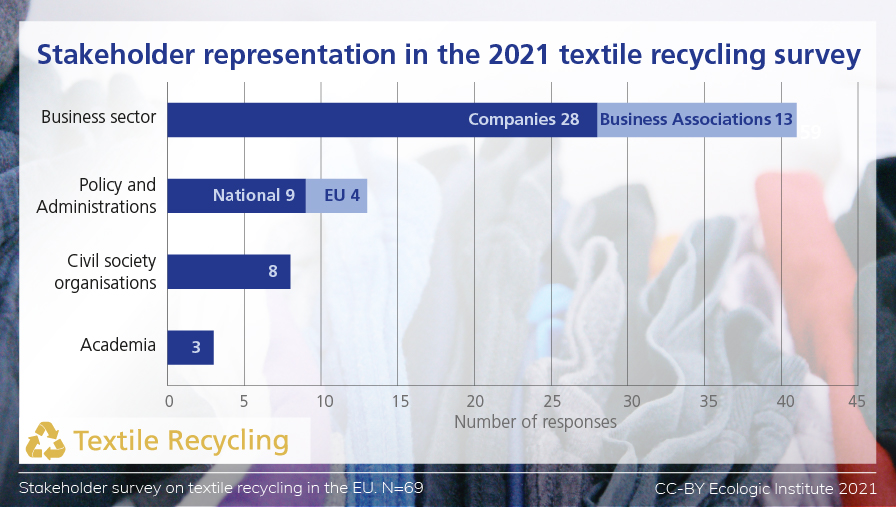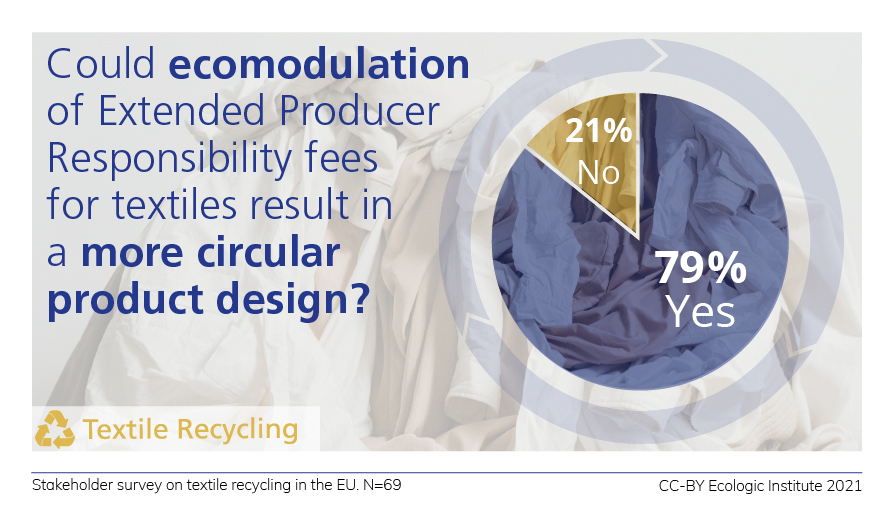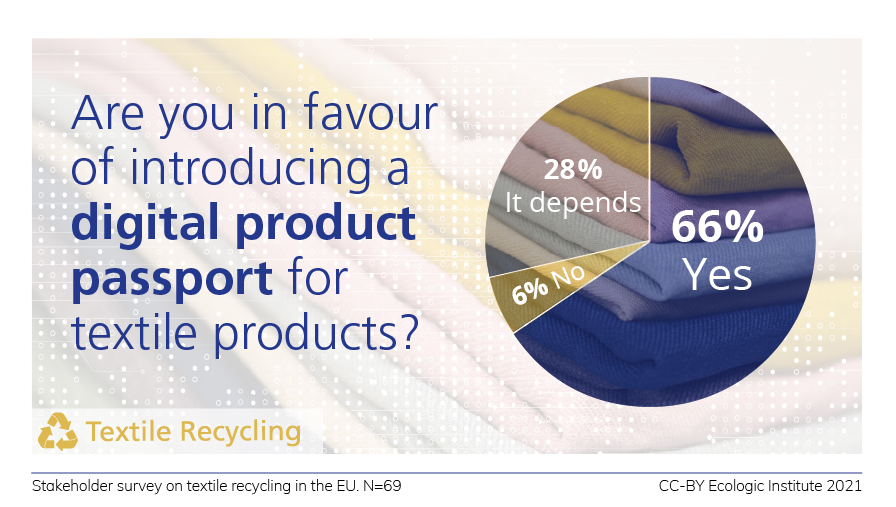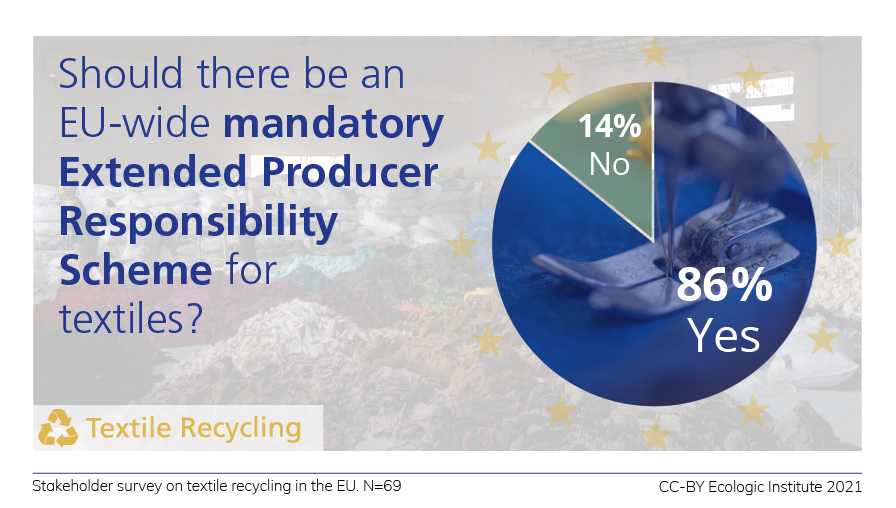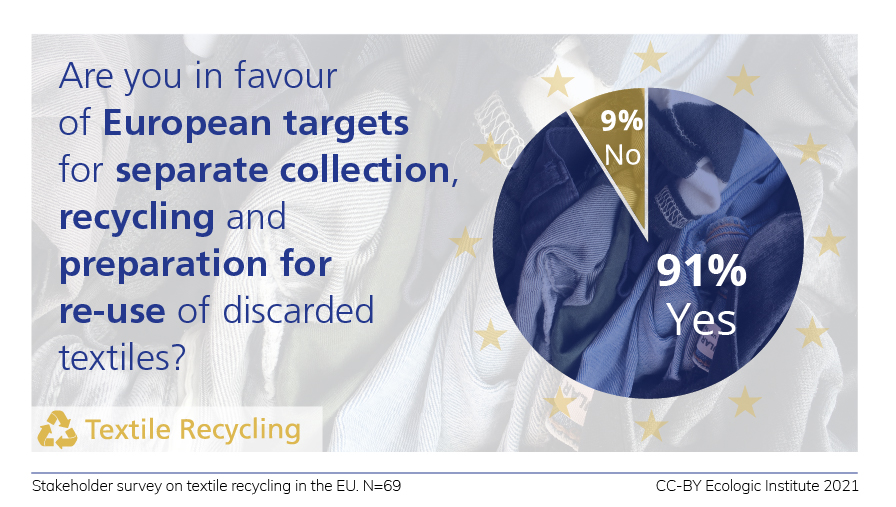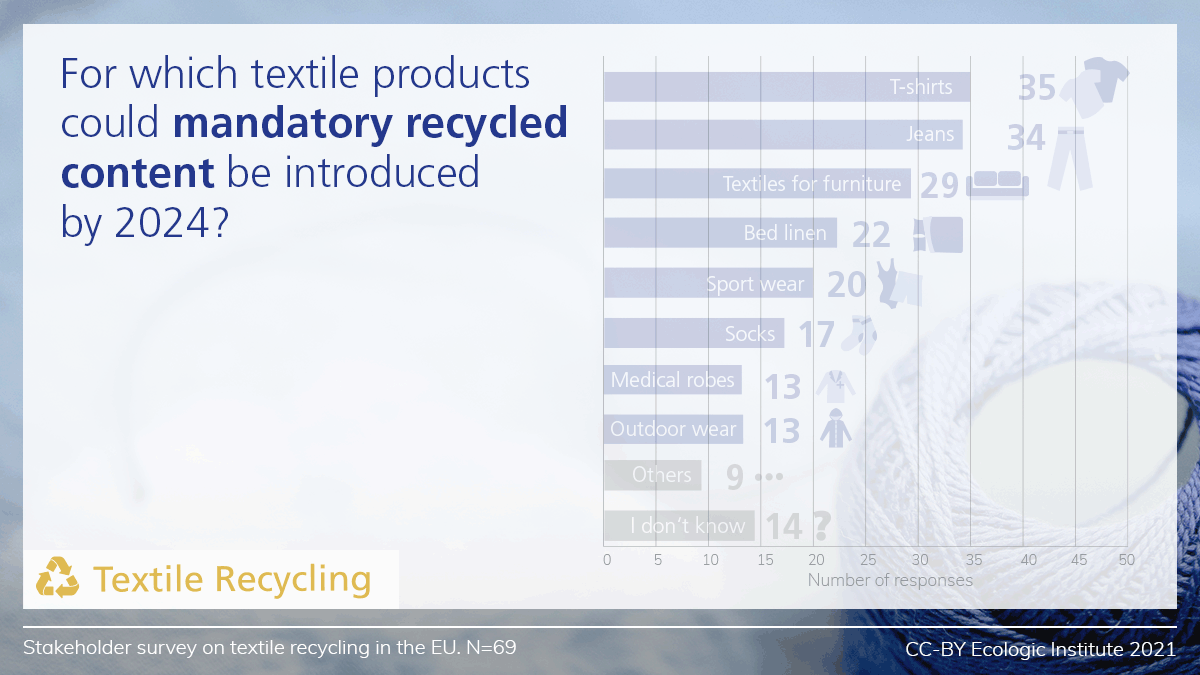Textiles, including clothing, are a priority product category for the circular economy and one of the focus sectors of the new Circular Economy Action Plan. The textiles sector is a relevant economic sector in the EU, both in terms of job and value creation, as well as regarding environmental and social footprint. Environmental pressures from the sector through the use of resources, water, land and chemicals are significant. The impacts occur in every phase of the life cycle: from production of fibers and products to distribution, the use of clothing, collection, sorting and recycling, and the final management of waste.
With consumption trends showing a tendency towards more and cheaper products with shorter lifetimes, large quantities of no-longer used textile products and textile waste emerge. Currently, the non-reusable fraction is mostly downcycled into industrial rags, upholstery filling and insulation, or incinerated or landfilled. Less than 1% of textile waste is recycled into new fibers for clothing. In the meantime, more and more brands are setting ambitious targets for the use of recycled fibers from post-consumer textile streams in their garments. This increased demand, and an increased awareness on the environmental impact, illustrates the great potential for high-quality fiber-to-fiber recycling.
The aims and objectives of this study were to provide substantial knowledge about the state of play and state of the art of textile waste recycling on global level, and a clear and well-defined analysis of opportunities and challenges for European textile and clothing industry. The results of this study are used as evidence base to improve the knowledge of the effectiveness and potential of existing and emerging recycling capabilities of most common fibers used singularly or in mixtures in the EU market. It also provides an analysis of the economic and environmental effectiveness of those recycling technologies and a roadmap of the textile recycling technologies under development in order to support their industrial uptake. Finally, the study also provides recommendations on relevant policy initiatives in order to tackle potential regulatory barriers and scale up textile waste recycling activities in the EU.
Ecologic Institute was responsible for analyzing the relevant regulatory framework and suggesting policy recommendations.



